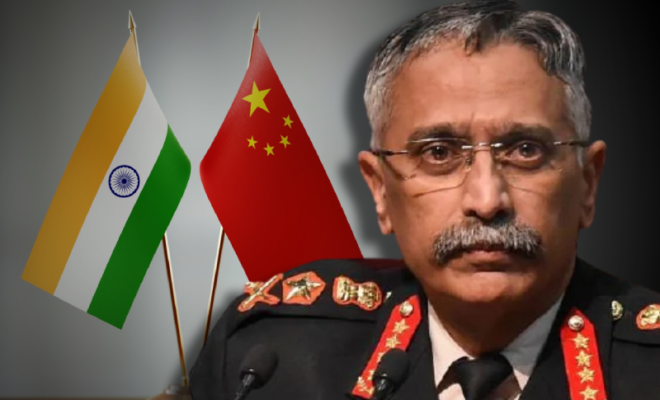Army Chief Gen Navrane: Chinese threat in no way reduced in eastern Ladakh

![]() Ladakh -Indian Army Chief General M. M. Navrane said on Wednesday that in no way has a threat in the eastern Ladakh region by China has reduced, even though partial disengagement has taken place at multiple fraction points along the Indo-Chinese border. The statement by Army Chief comes as the Corps Commanders from both countries met for 14th round of discussions in order to resolve the 21 monthly long standoffs in the region.
Ladakh -Indian Army Chief General M. M. Navrane said on Wednesday that in no way has a threat in the eastern Ladakh region by China has reduced, even though partial disengagement has taken place at multiple fraction points along the Indo-Chinese border. The statement by Army Chief comes as the Corps Commanders from both countries met for 14th round of discussions in order to resolve the 21 monthly long standoffs in the region.
General Navrane has also rejected China’s land boundary law that came into effect on January 1, 2022. He added that the law is not legally binding in India. Speaking ahead of the Army Day celebrated on January 15, General Navrane said, “This law will have no bearing on our bilateral relations and that we do not accept it as such.” He added, “India and China have many other agreements and protocols which predate this new law that they have passed. And any new law which is not binding on other countries and which is not legally tenable and is not in keeping with the agreements that we have had in the past, obviously cannot be binding on us.”
Related Posts
The land boundary law has been passed by China amid standoff stipulating that “the sovereignty and territorial integrity of the People’s Republic of China are sacred and inviolable”.
Speaking about the situation at Line of Actual Control (LAC), General Navrane said that it is “stable and under control”. He stressed that India is ready to “meet whatever is thrown at us in future”. He added, “War or conflict is always an instrument of last resort. But if resorted to, we will come out victorious.”
On talks with China that were held on Wednesday, the Army Chief said, “We are hopeful that we will be able to resolve the issues at PP15 (Hot Springs), which is the one which is pending as of now.” Relaying over positive developments during the talks, General said, “Talks have been going on for a long time. It is a good thing that talks are going on. We have to keep talking to each other. The 4-5th round of talks resulted in resolving patrolling point 14, the 9-10th round North and South Bank and Kailash ranges and subsequently patrolling point 17.”



